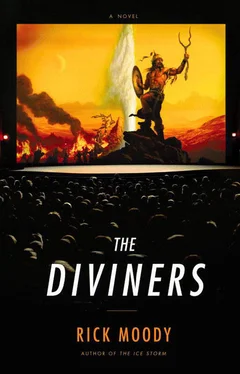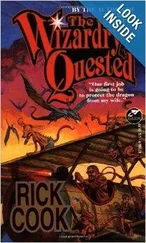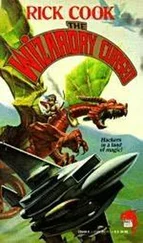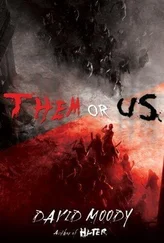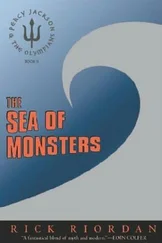Raoul said he was straight, which is what they all say, especially those men of the Catholic countries to our south, notwithstanding that they have all been around the block, pledging their eternal love to their boyhood friends before going and knocking up some she-vixen because they are too prideful to use a condom. Raoul said to Randall at the first tasting, “I am not a fruity wine like these others here,” and then he giggled as if he had never said anything so amusing in his life, which was perhaps true. Maybe he was straight, because who knew about these things? The libido is as mysterious as soil and sunlight and precipitation and the vine.
One fact was incontrovertible, however, and that was that Raoul had been an intravenous drug user during many years. He had lived on the streets for some of these years. It was likely that Raoul had been a male prostitute, perhaps in the Tenderloin. And this dark history of Raoul was, for Randall Tork, especially thrilling.
Accordingly, Randall visited this particular ward more often. Other locations of the needy began to get fewer lectures, less exacting attention. And then abruptly Randall Tork was visiting Raoul on a nonprofessional basis because Raoul was very sick and very thin, with a lingering pneumonia, and some days he could get out of bed, and some days not. Raoul was never less than enchanting, in his consumptive ghostliness, and he was always gallant when Randall Tork came around. The question was why. Why would a former male prostitute and IV drug user who claimed to be straight, whose main interest was Barry Bonds, get excited about the attentions of a stumpy, middle-aged wine writer with muttonchops and a beret, who sat around all day trying to decide whether to repaint his living room while checking the prices of his stock portfolio?
There was no reason on earth why Raoul should care for the attentions of Randall Tork, and thus the reasons must have been abstract and perfect, and Randall Tork, the greatest wine writer in history, did, of course, attempt to divine the nature of these abstractions while considering the force and meaning of the Castello di Ostuni, 1999 Chianti Classico (fifty-five dollars a bottle):
Why should this be the top Chianti from Ostuni, a region not widely noted for its fine wines? Why should this estate, which has been in the family since 1580, suddenly produce a wine that I love, after a run of the worst, most undrinkable table swill of my considerable experience? To answer these questions, reader, there is no choice but to speak of sweet love generally. When in love do you not see depth where once depth was unapparent, and when in love do you not see elegance where once elegance feared to tread, and when in love do you not see complexity where hitherto all was simplistic, and is not a condition of willingness and openness to novelty the most succulent of trances? Does not love eventually work its magic on even the unworthy? Yes, complexity is love’s highest aim, and in the case of a wine, its symbol is in the full-bodied nature of the vintage, and by full-bodied I mean the kaleidoscope of liminalities in one sweet goblet. Hold it up to the light, hold up the beloved wine to the light and see how when your love is decanted his blood is deep and red like history. Now drink of its bouquet, the bouquet of this sweet Chianti, its bouquet of musk and lilies and warm semen, and now you are ready to see the precarious balance in the taste of your love, citrus, honeydew, and birch, and now and only now are you ready to sip, oh yes; here are the fierce tannins, which ask for your courage and which call after you, reminding you of the responsibility of this sweet instant; now let the echo of that taste linger, bringing with it a sweet waiting. It is yours to delight in love and to remember that love and wine call you to the same reverence, to take and delight and remember and describe and teach and succumb to the sweet wrestling, the longing for what will soon be gone, for a bottle of wine must end, like the greatest love story told.
He threw caution to the wind and read the column aloud to Raoul. And though Randall wasn’t sure that Raoul would really understand all of it, the critic nonetheless performed his love poem, acting out his Keatsian excesses with stylized sibilances and exclamations. If Randall Tork could not answer why Raoul should favor him with attentions, perhaps it didn’t matter any longer, because the column proved that Raoul brought out the best in him. He even took Raoul out to a Mexican restaurant in the Mission, and he actually drank beer with Raoul, which he previously would never have been caught doing with anyone, and he laughed uproariously at Raoul’s tales of the street, of the camaraderies of the street. He didn’t care if the louts and toughs of the authentic Mexican restaurant used that horrible Spanish slang word to describe the two of them. Then he took Raoul back to the hospice, giving the taxi driver very exacting directions, which if not followed to the letter elicited torrents of abuse, because he now cared about the vintage known as Raoul and, notwithstanding the haste of the decision, he wanted to know if Raoul would come and live with him in Marin County, in his little house on stilts.
Of course, it occurred to Randall Tork that Raoul might be lying about various things. It occurred to Randall Tork that he was taking in a felon with a past full of shadows, but he was willing to do what needed to be done, which was to administer the tripartite cocktail when it needed to be administered, and to cook healthful soups from scratch, and to laugh when laughing was possible, and to give constant updates on baseball scores, and even to watch televised baseball if that was what was needed, to help the patient dress, to bestow kisses on the patient, and when Raoul began improving a little bit, when he seemed to rally such that he was even talking about getting a job, perhaps at a discount-beverage center, then Randall Tork knew that in addition to being the greatest wine writer in history, he was also a person whose love was curative. How to tell Raoul this, that he had never ever before been such a person, that his principal motivator had always been the urge to despoil? Now he wanted only to despoil the vineyard owners of Sonoma and Napa Valley, no one else. Passersby seemed more benevolent than ever.
There was the wrinkle: that Raoul would never make love with him. Would not, at any rate, have an orgasm with him. Raoul said that his spunk, which was the word he used, was toxic, and that it was not fair to subject Randall Tork to it, when the truth was that the very poison of Raoul’s little frogmen was what made them more ambrosial and heavenly. Randall would have delighted to eat them, as a testament to his sacrifices, since there was no apparent link between this practice and viral transmission. But no, when it came to these moments, Randall had to beg of his Hispanic lover, and this was proof that there were always further depths of humility for Randall to know, if he would know love.
The amounts of money that began to go missing were mainly inconsequential, because Randall Tork did not leave a lot of cash around the premises. He hated cash, in fact, and dealt almost exclusively in debit and credit cards. He was an inveterate saver, and most of his fortune, which was not much, considering the reach of his annual paperback and his Web site ratings, was tied up in mutual funds that had nosedived, along with everyone else’s, earlier in the year. Yet he was frugal and thrifty. When two hundred dollars disappeared from his wallet just after these monies were extracted from a cash machine, he didn’t fail to notice. Nor did he, however, immediately confront Raoul. He waited to see what would happen. Would the two hundred dollars be converted immediately into a speedball or whatever the term was? Six weeks later, there was another precipitous disappearance of cash. Randall asked himself what the saints would do. Would the saints thank the heavens that Raoul was feeling frisky enough to go in search of drugs? Would the saints forgive and forget?
Читать дальше
